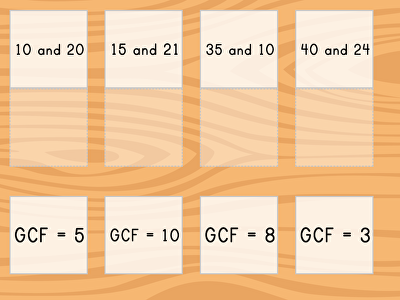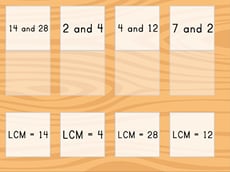Subtopics:
Educational 6th Grade Number Theory Games
About Educational 6th Grade Number Theory Games
On Education.com, 6th-grade number theory games provide interactive activities that help students strengthen skills in factors, multiples, prime numbers, GCF, LCM, and more. These games include puzzles, card games like Race to 27, and problem-solving challenges that make learning math engaging and fun. Each activity is designed to reinforce fundamental concepts while encouraging strategic thinking. Educators and parents can use these resources to supplement classroom instruction or provide hands-on practice at home.
Students can explore a variety of online resources on Education.com, such as printable worksheets and digital games featuring number puzzles, factor hunts, integer challenges, and games focused on mathematical strategy. These materials support both conceptual understanding and fluency and can adapt to different learning levels. By incorporating interactive exercises into their study routine, students gain confidence and strengthen their problem-solving abilities.
Educators and parents can utilize these resources to create engaging lessons and practice sessions that reinforce core number theory concepts. The materials promote both direct instruction and collaborative learning-through-teaching strategies, making math practice both educational and memorable. Savings in preparation time and structured activities help ensure that students develop a solid foundation while enjoying the learning process.
Students can explore a variety of online resources on Education.com, such as printable worksheets and digital games featuring number puzzles, factor hunts, integer challenges, and games focused on mathematical strategy. These materials support both conceptual understanding and fluency and can adapt to different learning levels. By incorporating interactive exercises into their study routine, students gain confidence and strengthen their problem-solving abilities.
Educators and parents can utilize these resources to create engaging lessons and practice sessions that reinforce core number theory concepts. The materials promote both direct instruction and collaborative learning-through-teaching strategies, making math practice both educational and memorable. Savings in preparation time and structured activities help ensure that students develop a solid foundation while enjoying the learning process.



